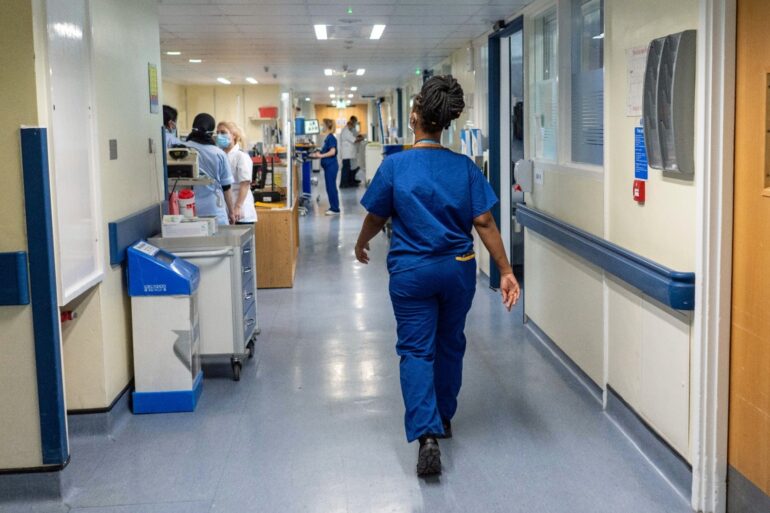-
 play_arrow
play_arrow
Kl 1 Radio Local radio for west Norfolk
-
 play_arrow
play_arrow
KL DISCO KL Disco Playing Disco Music from the 70's onwards.24/7
-
 play_arrow
play_arrow
KL COUNTRY KL COUNTRY Playing New and Classic Country Music 24/7
-
 play_arrow
play_arrow
KL ROX KL ROX The best of New and Classic Rock.24/7
-
 play_arrow
play_arrow
KL SUMMER Summer Vibes 24/7 from KL1 Radio across West Norfolk
-
 play_arrow
play_arrow
KL CLASSICAL Your Symphony Starts Here
-
 play_arrow
play_arrow
KL CHILL Just Chill!
-
 play_arrow
play_arrow
KL POP The Best POP Hits all day Long!
-
 play_arrow
play_arrow
KL XTRA KL XTRA
music_note

More than one million workers are unable to claim Statutory Sick Pay (SSP) due to their low earnings and may feel forced to work when they are ill, a new report warns.
A study by the Work Foundation suggested that nearly two thirds of the 1.15 million UK workers who currently fail to meet the SSP earnings threshold of £123 per week are women while a third are disabled.
A survey of more than 1,000 senior business leaders commissioned by the Work Foundation, found that almost half do not provide more than the statutory minimum level of sick pay, which the report said replaces less than a fifth of a worker’s average weekly earnings.
Two in five respondents said financial constraints were preventing their organisation from providing enhanced sick pay.
Alice Martin, head of research at the Work Foundation, said: “The truth is our workforce is getting sicker and yet not everyone gets the time off they need to live healthy lives.
“The current low rate of sick pay compels some people to work while they are unwell to make ends meet. This risks compounding existing health conditions and can lead to people dropping out of the labour market altogether.
“We currently have a record 2.83 million people economically inactive in the UK due to long-term health issues.
“Our previous research suggests many of these people want to work but aren’t given the necessary support to do so.”
The Work Foundation called on the next Government to strengthen statutory leave policies through an Employment Bill within the first 100 days in office and to reform SSP by removing the lower earnings limit.
Ruth Wilkinson, from the Institution of Occupational Safety and Health, said: “This is deeply concerning and something which needs to be addressed.
“People should not feel forced to work while sick or return to work too early.
“Doing so not only creates presenteeism, but it risks exacerbating their problem, potentially causing more long-term health problems.
“It could also impact their ability to do their job and to do it safely.”
Published: by Radio NewsHub

Similar posts
Upcoming shows

Darren Furzey – Classic Hit Weekend
1:00 pm - 3:00 pm

John Atkins – Sunday 60’s and 70’s
3:00 pm - 6:00 pm

Frank Hopping – Real Music Society
6:00 pm - 8:00 pm

Mike Bentley – The Theatre Show
8:00 pm - 10:00 pm

Jonathan Charles – Vinyl Countdown
10:00 pm - 11:00 pm
Message Us
Copyright The Mediasite UK - 2025








